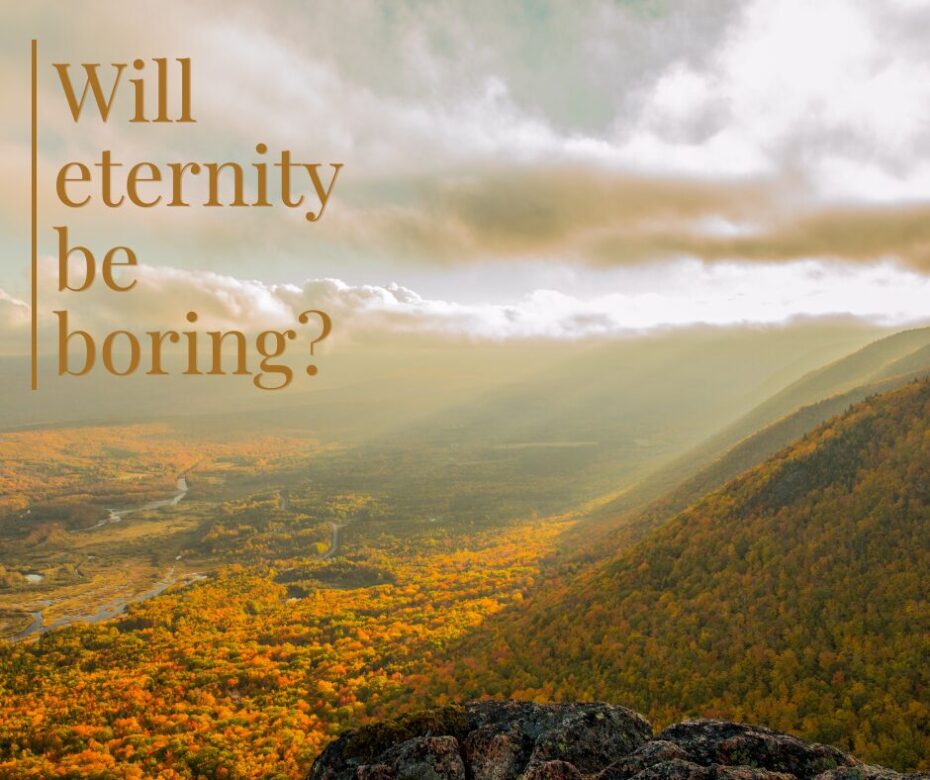Today, most churchgoers have a pathetic idea of what eternity will be like. They think it will take place in a faraway heaven, above the clouds. Those in that place will sit on a cloud playing the harp or singing in a choir forever. Few people look forward to such an eternity.
In Isaiah 65, Isaiah paints a completely different picture of eternity. Believers will not live in the heavens or the clouds. He refers to a new earth. As we know from the book of Revelation, Christ’s kingdom begins with our living with Him on this earth for one thousand years. That is what Isaiah focuses on. Afterward, Christ will create a new universe and earth. That is where we will live forever.
I am sure there will be music in eternity. But Isaiah does not mention harps or choirs. What he describes is a lot more exciting. He speaks of rejoicing and joy (v 18). It will be a place where there will be no weeping (v 19).
It will surprise many Evangelicals that Isaiah speaks of children’s being in the coming kingdom. During at least the first thousand years of Christ’s kingdom, there will be lots of children. People in physical bodies will live very long lives. At least some will probably live the entire thousand years in those bodies (v 20). Isaiah says they will live as long as the trees in Israel. Some of these trees lived for centuries. That is what Isaiah describes.
In the kingdom, there will be lots to do. People will build houses. They will plant vineyards. They will eat the fruit of their labor (v 21).
There will be not only children, but also animals. Wild animals in our current world, such as wolves and lions, will eat alongside domesticated animals, such as lambs and oxen. Even the fearsome snake will be harmless (v 25).
The mention of the snake reminds us of Genesis 3 and the Curse. The reference to a new creation (v 17) takes us back to Genesis 1–2. Adam and Eve were not created to play a harp in the clouds or sing in a choir for eternity. They had things to build and exciting responsibilities to perform. I think the idea of living on the earth as it was before the Curse would excite anybody living today.
Christ’s kingdom will be better. We will live on a new earth where the Curse will be no more. I am sure there will not only be music, but also the study of science. There will be art. We will travel. There will be activities we can only imagine.
Most important of all, the King will be there. That trumps everything. He will have things for us to do. We will be able to serve Him. During the first thousand years, we will be teaching and leading those born in that kingdom. It may be that such a situation will continue into eternity as well.
After the first thousand years, death will no longer exist. Sin will be no more. Perfect righteousness will characterize His kingdom.
Evangelicals need to reject the idea that eternity will be boring and lived in the clouds. If we study the words of Isaiah and the rest of the prophets, we will long to see the King and His coming kingdom. We will join the Apostle John in saying, “Even so, come, Lord Jesus!” (Rev 22:20).


